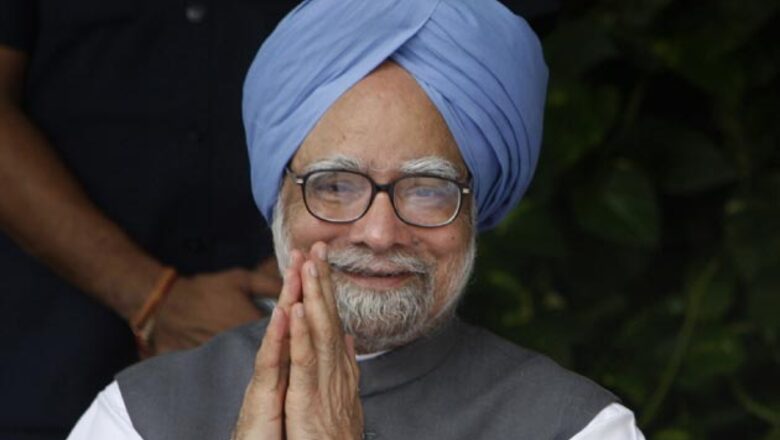My father has good sense of humour, used to give nicknames to people, says Manmohan Singh's daughter

views
New Delhi: Manmohan Singh had joined a pre-medical course as his father wanted him to become a doctor but pulled out after a couple of months, losing interest in the subject, according to a book on the former prime minister by his daughter.
Daman Singh charts the journey of her parents in her book 'Strictly Personal: Manmohan and Gursharan', providing new insights into the couple but keeps away from the last 10 years when Singh was heading the UPA government.
In April 1948, Singh was admitted to Khalsa College in Amritsar.
"Since his father wanted him to become a doctor, he joined the two-year FSc course that would lead to further studies in medicine. After just a couple of months, he dropped out. He had lost interest in becoming a doctor. In fact, he had also lost interest in studying science," Daman writes.
"I didn't have the time to think," the author, who based her book on conversations with her parents and hours spent in libraries and archives, quotes her father as saying.
"I went and joined my father in his shop. I didn't like that either, because I was not treated as an equal. I was treated as an inferior person who ran errands - bringing water, bringing tea. Then I thought I must go back to college. And I entered Hindu College in September 1948," Singh recalls. Economics was a subject that appealed to him immediately.
"I was always interested in issues of poverty, why some countries are poor, why others are rich. And I was told that economics is the subject which asks these questions," Singh tells his daughter.
While studying at Cambridge University, money was the only real problem that bothered Singh, the book, published by HarperCollins India, says.
"His tuition and living expenses came to about 600 pounds a year. The Panjab University scholarship gave him about 160 pounds. For the rest he had to depend on his father. Manmohan was careful to live very stingily. Subsidised meals in the dining hall were relatively cheap at two shillings six pence," Daman writes.
She says her father never ate out, and seldom indulged in beer or wine yet he would be in crisis if money from home fell short or did not arrive on time.
"When this happened, he skipped meals or got by on a sixpence bar of Cadbury's chocolate," she says.
He also asked a friend to lend him 25 pounds for two years but the friend could send only 3 pounds.
She also finds her father to be a funny man saying he has a good sense of humour.
"When in a reflective mood, he sat with an index finger perched on the side of his nose. He was completely helpless about the house and could neither boil an egg, nor switch on the television." He also had a sense of humour of sorts, she says.
"This was evident when he was with friends, even if they were economists. It was comforting to know that he could laugh and crack jokes as well. With us, he rarely did either.
"The lighter side of him liked to give nicknames to people. Unknown to them, one of our uncles was 'John Babu', another was 'Jewel Babu' and a third - to commemorate his pointed turban - was 'Chunj Waley'. My mother was 'Gurudev', and the three of us were 'Kick', 'Little Noan' and 'Little Ram'. Some of the other names he coined were less charitable," Daman writes.
According to the author, during his college years Singh read voraciously and the broad seep of his reading covered theological critique, social commentary and political ideology.
"Modern Punjabi literature was a special interest and he read in Gurmukhi as well as in Urdu."
Croquet was the most strenuous game he tried his hand at while he was at Cambridge. He neither rowed nor punted. But he did watch a fair amount of cricket, particularly when Swaranjit Singh, a burly off-spinner who played cricket for the university team 'Light Blues', was on the field.
In the company of friends, he would go for the occasional movie at the Arts Theatre, or else to a pub for the odd pint of beer, she says.
Daman says as a public servant, somewhere along the way her father retreated from family affairs and allowed his work to take over his life.
"Every day his office accompanied him home in big cloth bundles that we helped lug out of the car.
"He worked in bed where he sat cross-legged with a pillow on his lap, a stack of files beside him. As he hunched over his papers, inscribing neat squiggles, he would tug his beard and mutter to himself. When he was not working, he was usually preoccupied with a book or else with his thoughts," she says.




















Comments
0 comment